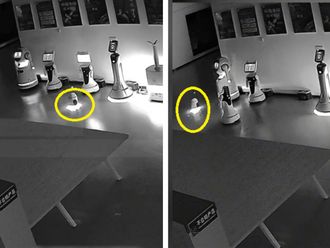Dubai: Abu Dhabi, Dubai and Doha ranked highest in terms of high ICT maturity levels in terms of infrastructure development and usage of ICT services, according to the first edition of Ericsson Middle East and North Africa (Mena) Networked Society City Index.
The report analyses the levels of ICT-driven benefits created in 11 of the Mena region’s largest cities.
One of the key findings of this report is that, in general, the 11 cities studied show high ICT maturity levels in terms of infrastructure development and usage of ICT services when compared to major cities in the global City Index report. In parallel, the report points to considerable opportunities, yet to be seized, to leverage the socioeconomic benefits of this high ICT maturity level.
“ICT has become an integral part of our working environment and will continue to be an important resource for business growth. The environment of entrepreneurship and innovation is enhanced by ICT as it provides the tools and infrastructure that make it easy for entrepreneurs to start a business.
“ICT nurtures innovation and helps people to realise their ideas for new companies, products and services. It provides access to a market far greater than was previously possible for start-ups,” Anders Lindblad, President Ericsson Region Middle East and North Africa, said at the Ericsson Networked Society Forum held in Dubai on Sunday.
The importance of connectivity for businesses, and the empowerment it brings, was clear from the high levels of internet usage with penetration rates comparable with many international business hubs, including Shanghai and London.
The report reveals that 79 per cent of the population in Amman uses the internet for work, while Muscat and Doha are not far behind at 77 per cent and 62 per cent respectively.
Furthermore, mobility was also a key indicator from the study, with Abu Dhabi, Dubai and Doha all revealing 100 per cent mobile phone usage, and other analysed cities falling no lower than 83 per cent. This factor was also an important enabler for those in cities with lower GDP per capita than some of the more affluent in the study, as despite low income levels it was found that many spent 10-20 per cent of their monthly salary on mobile phone usage in order to stay connected.
Lindblad said: “Trends suggest that more than 60 per cent of all people in the region will live in cities by 2030. In the future, advances in technology and infrastructure performance will continue to change our lives, as ICT has the potential to help us meet some of our great societal challenges...The report shows high levels of ICT maturity in the Mena region in terms of infrastructure and usage and indicates the untapped opportunities to leverage the socioeconomic benefits.”












